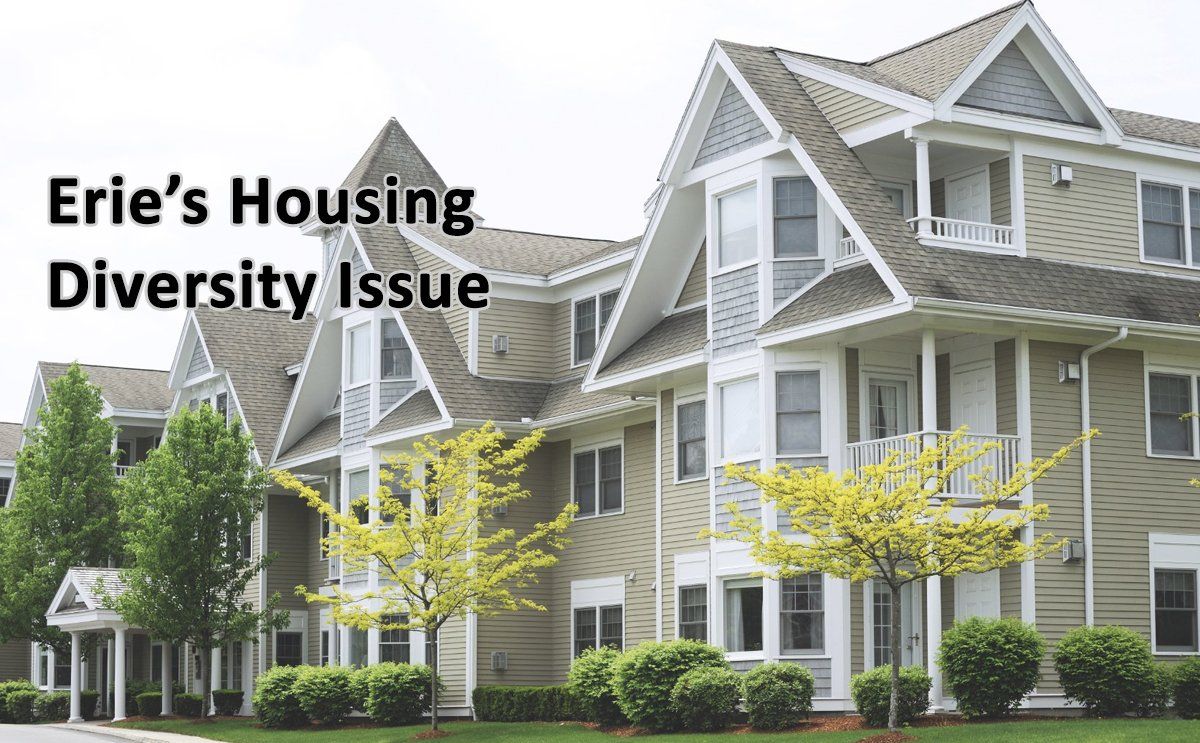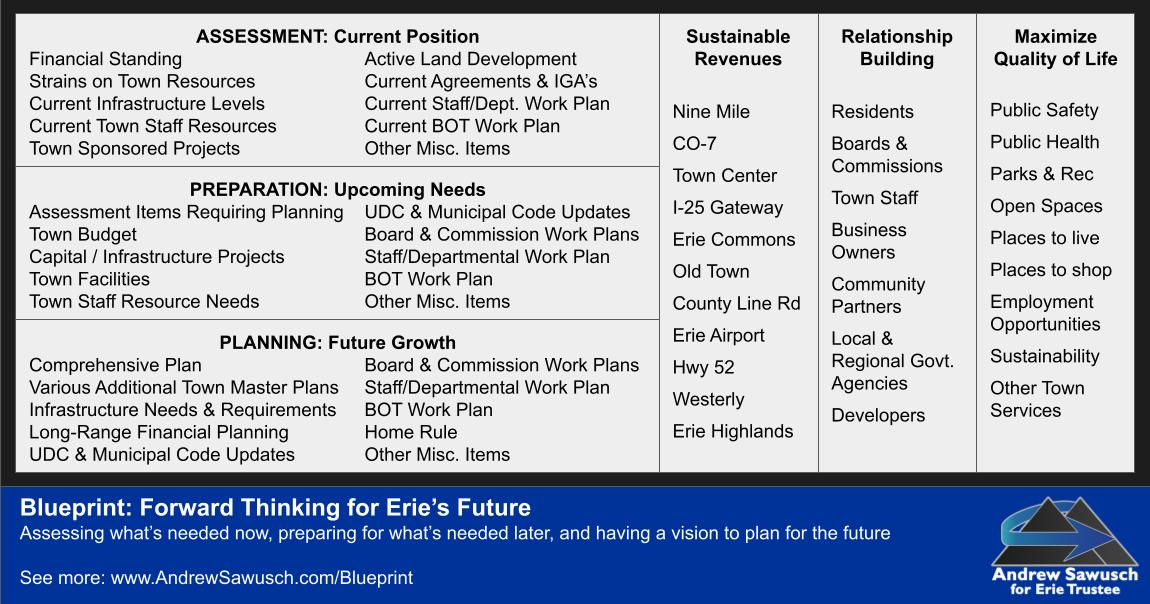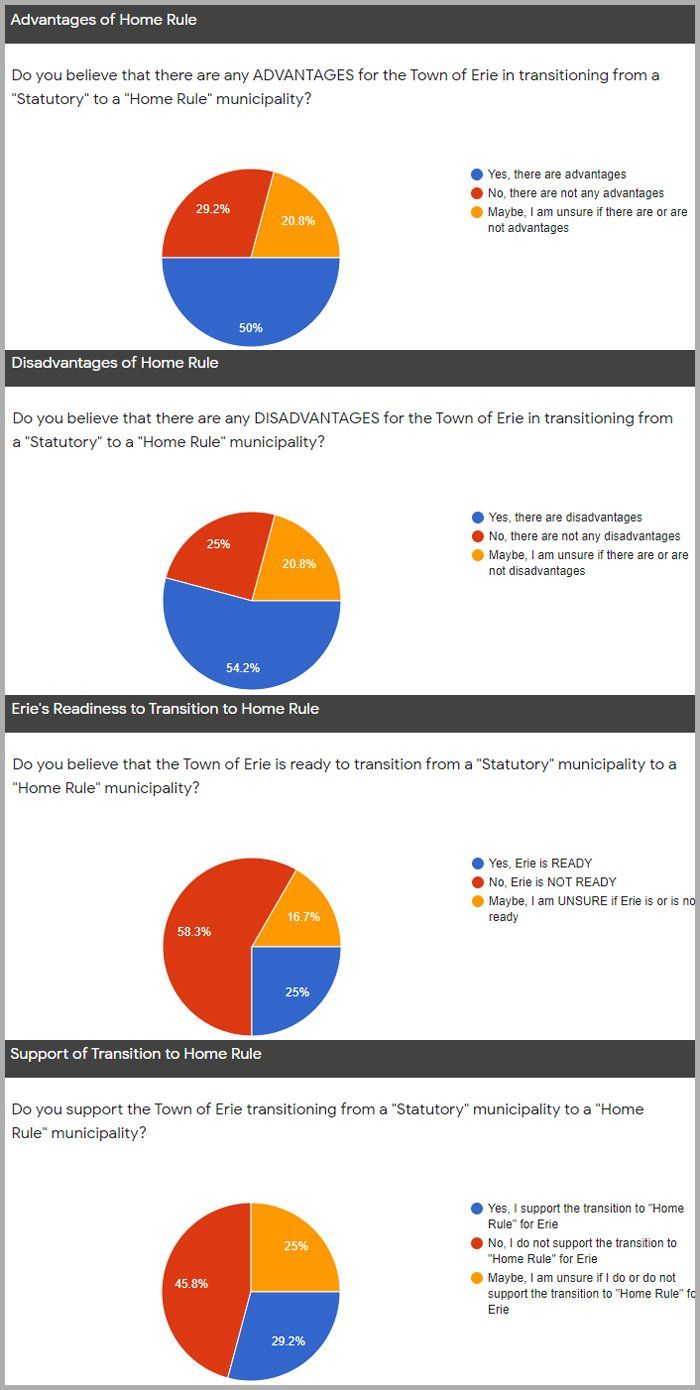Home Rule: All of the Information you would want to know about it (and more)
Andrew Sawusch • February 14, 2020
Home Rule is important, and deserves a discussion on all of the items related to it. This article goes in-dept, explaining the process, what it can and cant do, as well as the history behind it.

What is Home Rule
"Home Rule" is a constitutionally protected provision within the Colorado Constitution, providing the method and means for municipalities to assert any and all governance or control over their local and municipal matters. However, this local control is provided by the state, and is negated for specific items and activities that the state deems as a "state matter". If an item is specifically noted within the state constitution, a state statute, a state rule or regulation, or deemed to be a "state matter" through judicial proceedings taken on by the Colorado Court of Appeals or Colorado Supreme Court, the local municipality can not supersede state law, regardless if there are provisions or ordinances within the home rule charter.
The process to initiate, develop, and elect a home rule charter is long and arduous, requires the full involvement and support of the Town's residents at multiple steps along the way, and must be followed "by the book." Since the power of governance and control over these specific local or municipal matters are only conveyed if the home rule charter specifically includes these items, any and all items that should be in the charter must be initially adopted within the charter to begin with. While there are in fact a great number of areas and topics that a home rule charter can affect, if the items are are not specifically included upon the initial adoption of the charter, any amendment, addition, or repeal of any provision or ordinance must again be initiated and placed before the voting residents during an election. If a specific ordinance or provision is not included or added within the home rule charter, state law will still dictate, govern, and regulate the local municipalities actions as it relates to specific topics.
Furthermore, the home rule charter as well sets the methods, actions, and provisions related to the governing body, municipal courts, Town staff, taxing bodies, public utilities, and every other individual and organization in between where the municipality has the legal rights conveyed to them through the home rule charter. It is this living document that not only includes provisions as to how the new government will be initially formed, but as well dictates the progression and future for all of these members within the community. The home rule charter is ultimately "the end-all, be-all" for the Town, and must be completely and comprehensively outlined, pertaining to every seen and unforeseen activity, immediately at the inception and initial adoption.
History of Home Rule
Home rule, at its core, only provides municipalities with the powers that are granted to them by the State (Dillon's Rule). Any items that are deemed "state matters", or items in the future decided to be "state matters" by the Colorado Supreme Court, would default back to State statutes. Federal and state laws that address matters beyond local concern still apply.
In 1912, Colorado began allowing towns and cities to become "home rule" municipalities" under Article XX Section 6
of the Colorado Constitution. This article grants municipalities with the full right of self-government in both local and municipal matters, and provides certain powers that provide the municipality and its residents the ability to exercise these rights. While the Colorado State statutes still apply to these municipalities, they are superseded by the charters or ordinance passed within the home rule charter. The charter allows for a municipality to retain the powers for administration and governance of the local municipality, including the power to legislate upon, provide, regulate, conduct and control the following:
Then, the Municipal Home Rule Act of 1971 (C.R.S. 31-2-201) allowed any and all municipalities to decide on the option of home rule, providing the specific paths for adoption. It laid out exactly what the process was, the steps necessary to move forward with the initiative, as well as how the charter would be formed.
After the state began allowing municipalities to adopt home rule, statutes and court rulings began to reflect which activities were or were not within the state's purview. While the home rule charter allows for any local ordinance addressing a matter to supersede a conflicting state statute, this is only after the matter is determined to be of a local and municipal concern. If the state determines that it is a "state matter" and "in the interest of the state", then the charter can not supersede state law.
The charter allows a municipality to define their own local laws that could be more stringent or lax than State laws (depending on specific area/topic), to have the power to make relevant legislature and exercise control over issues of “local concern” with minimal state intervention, and to have more flexibility and control to address foreseeable changes and citizen desires. This is noted within many state laws, which include the disclaimer "within any limitations provided by the applicable provisions of the state constitution and, in the case of any home rule municipality, the applicable provisions of its home rule charter". There are a vast number of items and topics that a charter can do and can affect for a home rule municipality, yet there are also very specific activities that it cannot do because of State statutes, or specific items that have been deemed "state matters".
The Process
From beginning to end, and depending on if the first charter submitted for a vote is rejected and then re-proposed, the entire process can take as little as a year, or up to a maximum of 2 to 3 years. First begins the initiation of the home rule process, then a charter commission is elected. After the commission is formed, the commission members develop the charter, which is then voted upon. If the first proposed charter is accepted, it becomes law on the effective date noted within the charter. If the first proposed charter is rejected, the commission goes back to work to re-propose a new charter, which is then voted upon again. If this re-proposed charter is rejected, the commission ends and a new home rule initiative can not begin for at least a year.
Beginning the Initiative
- Home Rule may be initiated for a municipality through one of two ways:
- A petition signed by 5% of registered voters within the municipality § 31-2-204 (1-a)
- The Board of Trustees adopt an ordinance to begin without a petition submitted by residents § 31-2-204 (1-b)
- Within 30 days after initiation: Board of Trustees calls for an election to form a Charter Commission, and to elect members of the commission, in order to create a Home Rule charter § 31-2-204 (2)
- Not less than 60 days prior to election: Board of Trustees issue a public notice for the election of Charter Commission § 31-2-204 (2)
- Within 30 days after public notice of call for election: Nomination petition and candidate affidavits must be received by the Town Clerk. To be a nominated candidate, the petition requires the signatures of at least 25 registered voters. § 31-2-204 (3)
- As soon as possible after nomination petitions received: The Town issues a second public notice, noting the names of candidates who are nominated and running for election to the Charter Commission § 31-2-204 (3)
- Within 120 days after call for election: Election held for the charter commission and the individual members § 31-2-204 (2)
The 1st Election - Two Items to Vote Upon
- Within the first election, there are two separate items which will be voted upon:
- Voters are asked if the formation of a charter commission should be initiated, where a majority (over 50%) is required to initiate the formation § 31-2-205 (1)
- Voters are asked to elect the individual members of the commission who will frame the Home Rule charter. The individual candidate(s) receiving the most number of votes wins election. § 31-2-205 (2)
- In the event of a tie, the Town Clerk performs a lot draw to select who is elected
Forming the Charter Commission
- The Charter Commission, and the eligible Candidates who will appear on the election ballot, are comprised of members who are registered voters and who reside within the municipality § 31-2-206 (3)
- The Charter Commission is comprised of anywhere from 9-21 members (must be an odd number). The actual number of Commission members is specified by the initiating petition, or defined in the ordinance by the Board of Trustees § 31-2-206 (1-b)
- The composition of the individual members for the Commission can be specified in one of three ways, and is determined within the petition or ordinance that initiated the process: § 31-2-206 (2)
- Members selected “at-large” from the Town as a whole, regardless of where they live within Erie
- Town split into districts of equal population, an equal number of members are elected from each district, and are voted on by residents of those specific districts
- Combination of “district” and “at-large” members, voted on by residents of those specific districts, as well as voted on Town-wide as a whole for “at-large” candidates
- Any vacancies that arise on the Charter Commission shall be filled through appointment by the Board of Trustees § 31-2-206 (3)
- If the formation of a commission is rejected, a new initiative to begin the same process can not be started until at least 12 months after rejection, and the entire process would need to restarted from the beginning, starting again with a resident petition or Board of Trustees ordinance to initiate the process § 31-2-214
What the Charter Commission Does
- The Board of Trustees sets a date and time when the elected Commission must first meet, no later than 21 days after being elected § 31-2-206 (4)
- Select a Chairman, Secretary, and other officers as deemed necessary, from members of the Commission
- Adopt rules of procedure for its operations and proceedings
- A majority of the commission members in-attendance constitutes a quorum for transacting business § 31-2-206 (4)
- All future meetings are open to the public, and are called upon by the chairman or a majority of the members § 31-2-206 (4)
- In order to prepare the charter, the Commission can conduct interviews, make investigations, request help/information/assistance from the Board of Trustees and Town staff (which must be provided within reason) § 31-2-206 (8)
Funding and Expenses of the Commission
- The Town’s “General Fund“ is used to pay expenses § 31-2-206 (7)
- Reasonable expenses of the Commission paid after written verification made by the Chairman and Secretary
- The Board of Trustees must provide supplemental appropriation ordinances, as deemed necessary,y to support the expenditures
- Members of the Commission are not compensated, but are reimbursed for actual and necessary expenses incurred in performing their duties
- The Board of Trustees may accept funds, grants, gifts, and services for the commission from the state of Colorado, or the United States government, or any agencies or departments thereof, or from any other public or private source. § 31-2-206 (6)
- The Commission may employ a staff, consult and retain experts, and purchase, lease, or otherwise issue expenses for such things as supplies, materials, and equipment, as it deems necessary. § 31-2-206 (5)
- Upon completion of its work, the commission shall be dissolved, and all property of the commission shall become the property of the municipality
The 2nd Election - Voting on the Proposed Charter
- The Charter Commission must hold at least one public hearing in preparation of a proposed charter § 31-2-206 (9)
- Within 180 of their election: the Charter Commission must submit the proposed charter to the Board of Trustees § 31-2-206 (10)
- Within 30 days after submitting the proposed charter: The Board of Trustees provides public-notice of a charter election, voting on whether to approve the proposed charter § 31-2-207 (1)
- Within 60 days after providing public notice of the charter election: The Board of Trustees must set the ballot title for the proposed Charter § 31-2-207 (1.5)
- Within 60-185 days after providing public notice of the charter election: The election whether to approve and adopt the charter must take place § 31-2-207 (1)
- Alternative provisions with the Charter may be submitted and voted upon as separate items by the Town’s voters. The alternative provision receiving the highest number of votes, if approved by a majority of the registered electors voting, is approved § 31-2-215 (1)
- If there are conflicting provisions that are not submitted as alternatives, the one which receives the greatest number of votes is accepted § 31-2-215 (2)
- If a majority (over 50%) of those who vote on the charter ballot item vote in-favor of it, the Charter is approved and it becomes effective on the date that is outlined and provided within the charter § 31-2-207 (2)
- Within 21 days after its approval: A certified copy of the charter is filed with the Secretary of State and with the Clerk § 31-2-208 (1)
- If a majority (over 50%) of those who vote on the Charter ballot item, vote to reject the Charter, the Charter Commission re-starts preparations for a revised proposed charter, and moves to a 3rd charter election § 31-2-207 (3)
The 3rd Election - Voting on the Re-Proposed Charter (if needed)
- The process prior to this is exactly the same as “What the Charter Commission Does”
- The election is exactly the same as “The 2nd Election”, however, this is the final opportunity to approve a charter
- If a majority (over 50%) vote in-favor of it, the re-proposed Charter is approved and becomes effective on the date that is outlined and provided within the charter § 31-2-207 (3)
- If a majority (over 50%) vote to reject it, the Charter Commission is dissolved § 31-2-207 (3)
- If the re-proposed Charter is rejected in this 3rd Election, a new initiative to begin the process can not be started until at least 12 months after rejection, and the entire process would need to restarted from the beginning, starting again with a resident petition or Board of Trustees ordinance to initiate the process § 31-2-214
Amending or Repealing the Charter
- After the Charter has been approved, in order to amend the charter: § 31-2-210 (1)
- Must be started one of two ways:
- Either a petition must be circulated by residents, with text stating the proposed change,
- For a regularly election held every odd-year: signed by at least 5% of the registered voters within the municipality
- For a special election: signed by at least 10% of the registered voters within the municipality
- Or through an ordinance adopted by the new governing body, stating the proposed amendment and the proposed ballot title
- Once voted upon, if a majority (over 50%) of the registered voters within the municipality vote in favor of amending the charter, it is approved, and goes into effect as outlined in the amendment § 31-2-210 (6)
- After the Charter has been approved, in order to repeal
the charter: § 31-2-210 (2)
- Must be started one of two ways
- Either a petition must be circulated by residents, with proper text stating to repeal or form a new charter commission,
- For a regularly election held every odd-year: signed by at least 5% of the registered voters within the municipality, filed at least 90 days prior to regularly scheduled election
- For a special election: signed by at least 10% of the registered voters within the municipality, filed at least 90 days prior to anticipated scheduled date of special election
- Or through an ordinance adopted by 2/3 of the new governing body, stating the proposed repeal, or formation of a new charter commission that is again elected by the residents within the municipality
- Once voted upon, if a majority (over 50%) of the registered voters within the municipality vote in favor of repealing the charter, the charter is repealed, and the town must begin to proceed with reorganization of the Town’s municipal code § 31-2-210 (6)
- After receiving an amendment or repeal petition, the current governing body would certify that the petition is valid and sufficient of such a petition § 31-2-210 (3)
- If the petition is deemed insufficient or invalid, the election on the question of amending or repealing the charter is cancelled
- If an amendment or repeal of the charter is rejected, a new initiative to begin the same process can not be started until at least 12 months after rejection, and the entire process would need to restarted from the beginning, starting again with a resident petition or Board of Trustees ordinance to initiate the process § 31-2-214
What a Charter Can and Can Not Do
What a Charter Can Do
- Allows the municipality to set their own procedures for the initiative and referendum of measures, and for the recall of officers
§ 31-2-212
- Allows for the municipality to call itself either a “Town” or a “City” (Erie may reclassify itself as a “City”) § 31-2-216
- Allows for the municipality to indicate exactly how the governing body is formed, the type of body, how elections are scheduled, how recall or special-appointments are completed, and other governing body related items. § 31-1-102
- Allows the municipality to set their ordinances or provisions which increase their influence over property located within their jurisdictional boundaries, including their claims to eminent domain, seizures, and condemnation of both public and private property § 38-1-101, § 38-1-201
- Allows for the municipality to set their own laws pertaining to campaign finances and reporting, or other campaign related items, which would supersede state statutes, rules, and regulations, whether they are or are not more stringent than state (this could potentially include ordinances or provisions that are more lax on items, as compared to state law - such as "the prohibition of corporations or labor organizations from making contributions to a candidate committee or political party, and from making expenditures expressly advocating the election or defeat of a candidate" as outlined in Section 3(4)(a) of Article XXVIII - which could remove these restrictions for candidates seeking office within the municipality) 8 CCR 1505-6 Rule 14 & No. 03-1 - AG Alpha No. ST EL AGBAS - January 13, 2003
- Allows for the municipality to adopt provisions for local elections that are more stringent than any of the State provisions § 1-45-116
- Allows for the municipality to self-collect taxes, where the municipality would administer, collect, and distribute taxes on their own, including, but not limited to sales, use, excise, and special taxes § 29-2-107
- Allows the municipality to set ordinances or provisions that pertain to their taxing abilities (including types, rates, amounts, and any other specifics related to taxation) § 29-2-107
- Allows for the municipality's use tax laws to take preeminence, where state statutes are deemed inapplicable when in conflict with a home rule municipalities laws, such as an excise tax constituting a one time use fee imposed on a privilege at the time the privilege is exercised § 29-2-109
- Allows for the municipality to request that the Colorado Department of Revenue still administer, collect, and distribute sales tax for Erie (including reporting, filings, etc.). Taxation must still follow the States "Uniform Collection Procedures“
§ 29-2-106
- Allows for the municipality to create specific ordinances and provisions that give them the full control to govern and regulate all of the rates, charges, and tariffs of every public utility within its jurisdiction - almost entirely negating the jurisdictional powers of the state's Public Utilities Commission when the charter gives control to the municipality § 40-3-102
- Allows for the municipality to provide qualifying retail utility providers the authority to condemn or exercise the power of eminent domain over any real estate, right-of-way, easement, or other rights, pursuant to their generation facilities of a renewable energy system used to meet the electric resource standards § 40-2-125
- Allows for greater control over the municipal court and municipal judges, including the tenure, appointment, and removal, including specifics such as “removal at the will of the city council” § 13-10-103
- Allows for ordinances or provisions regarding the residency restrictions of municipal employees, including the maximum distance away that they can live, or if they must live within the municipality’s boundaries (however, the charter must not contain inconsistent provisions or state law will preempt this) § 8-2-120
- Allows for the municipality to set their own debt limits, bond practices, and types of bonds issued, including, but not limited to general obligation bonds, revenue bonds, special assessment bonds, and special obligation bonds, including for the issuance of bonds on behalf of their special authority bodies, such as the Urban Renewal Authority § 31-25-112
- The charter still allows, just as a statutory municipality is currently able to, for more protective or stricter requirements related to local drilling, fracking, oil, and gas regulations (still excluding outright bans)
§ 34-60-131
What a Charter Cannot Do
- In order to increase taxes, impose a new tax, increase mil levies, or any other tax policy change that would directly cause a net tax revenue, the municipality would still need to request tax changes or increases through a ballot measure on the next odd-year election, or through a special election
§ 1-41-103
- Adopting a charter does not provide the right to destroy any property rights, contract rights, or right of action (civil, criminal, vested). Prior rights that were previously existing or were granted by the municipality before the adoption of a charter still remain, and the charter can not affect those rights existing beforehand between the municipality and any person § 31-2-217
- The municipality would still be unable to claim eminent domain, seize, condemn, or have any influence over any property outside of its jurisdictional boundaries § 38-1-101
- The municipality would still be unable to make its sales tax lien superior to the commercial lien of a private lender, except in regards to liens placed for unpaid sales taxes § 29-2-107 & TOWN OF AVON v. WESTSTAR BANK, 2002
- The sale of construction and building materials, the sale of tangible personal property at retail or the furnishing of services, and the sale of any food for domestic home consumption (excluding prepared food or food for immediate consumption), would still be nontaxable, either in general or if previously paid to another entity § 29-2-105
- A charter, amendment, or measure can not reduce the state tax rate, or interfere in any way with the collection of state taxes Colo. Const. Art. XX, Section 5
- A charter does not allow for a municipality to set rent control laws on private residential housing units § 38-12-301
- The municipality would still be unable to enact or impose upon commercial pesticide applicators any notification requirements which are more stringent than State law. However, the municipality would still be able to enact or impose notification requirements for private individuals, property owners, and the general public § 35-10-112
- The municipality would still be unable to place an outright ban on oil and gas or fracking activities, or to totally exclude all drilling operations within city limits, since these activities have been deemed to be in the “state’s interest”, and the state specifically prevents a home-rule city from exercising its land-use authority. § 34-60-106
Home Rule for Erie
Erie is currently the largest statutory municipality within Colorado with a population of 30,000 residents. Within the
2019 Community Survey, residents were asked if home rule should be a priority, yet it came in second to last among all of the topics that were surveyed.
The question asked "How much of a priority, if at all, should it be for the Town of Erie to do each of the following?", either noting it as "high priority", "medium priority", or "low priority", or "I don't know". The question listed "home rule" 2nd out of 6 items.
Only 60% of survey respondents even provided a "priority level" response for the question at all (529 responses with a "priority level" indicated, 851 in total who responded in any way to the question out of a total 896 surveyed). All of the other items that were listed for that question received between 821 and 856 responses which indicated a "priority level".
Of the 529 that responded to a priority level:
- High priority: 16% of the votes (86 out of a total 529)
- Medium priority: 44% of the votes (233 out of a total 529)
- Not at all a priority: 40% of the votes (210 out of a total 529)
Then, if you include the "I don't know" (a total of 851 responses for that question, out of 896 total respondents to the survey)
- High Priority: 10% of the votes (86 out of a total 851)
- Medium Priority: 27% of the votes (233 out of a total 851)
- Not at all a Priority: 25% of the votes (210 out of a total 851)
- I don't know: 38% of the votes (a total of 322 out of a total 851)
This is VERY telling to begin with. It means that 38% of residents do not understand what home rule actually is to begin with. In terms of "ballot voting", if someone does vote and provides a response to a ballot measure, but does not understand what the topic is, they are inclined to vote "no".
Then, it also means that 52% of residents do not believe it is a "high priority" at all. In terms of "ballot voting", if someone does vote and it is not a "high priority" to them, they are inclined to vote "no".
Recently, I distributed a survey asking residents about their thoughts on home rule. What I found is that either residents do not support it, or they simply do not know what it is (which is exactly what the community survey indicated).
Both of these lead me to believe that Erie is not ready to vote upon "home rule" this year. I believe that it should be placed on a ballot next year (or possibly even the year after) to initiate the formation of a home rule charter commission, but I think that the board is mistaken if they believe the Town will be ready this year.
The home rule discussion first began as a Town staff report during the August 27, 2019 Board of Trustees meeting. 19-398. The staff member specifically stated during the staff report that the item added to the agenda was "mostly just a heads up for (the board), we didn't want you to be surprised when (CIRSA came to present on the topic) and (have you) feel like oh, this is the first time that we're seeing this, we have to do something. It's a pretty tight schedule - if you're interested in pursuing home rule - so we wanted to give you a head up." Town Staff then proceeded to say that they had already scheduled a date in September for the Executive Director of CIRSA to present, specifically pertaining to the topic of home rule.
In the Board of Trustees "Study Session" held on September 17, 2019, the same Town staff member who provided the staff report in August, said that "this was one of the issues that you had listed on your 2019 work plan as needing more information on. We brought a quick summary of the issue to you a few weeks ago, in your packet. The board had asked that we arrange for a representative from CIRSA to come talk about home rule - the pros and cos, and background, and procedures, and timelines for things, so we could have a more robust discussion about what it would take, why we might do that. So we engaged (CIRSA)."
First off, if you look at the 2019 Work Plan Priority List issued by the Board of Trustees, based on the "priority level" that the board made, the "Home Rule" topic was noted, according to its priority level, number 38 out of a possible 47 topics, with a "relative priority" level of 1 (the highest was 13, the lowest was -2), and a "community engagement level" of 1 (the highest was 5, the lowest was 1). However, the detailed plan, as outlined by the same Town staff member who I noted above from the August and September Board of Trustees meeting, noted this as a "Level 5: Empower interested parties" in terms of the "engagement score" that they believed this initiative should be.
Then, at the October 22, 2019 Board of Trustees meeting, the
Action Plan was presented for the home rule initiative, as well as the 2020 Budget was approved, which included appropriations for the 2020 Home Rule initiative. Finally, the Board of Trustees began the "Community Engagement" portion of the initiative, through a resolution which was submitted and approved by the Board of Trustees at the January, 28, 2020 meeting, hiring a consulting firm for $49,411.85.
So a new question has to be asked: why are certain members at Town Hall pushing home rule so hard?
The answer is once again.... water. Under Article XX, section 6 of the Colorado Constitution, a home rule municipality is provided the right to "The consolidation and management of park or water districts in such cities or towns or within the jurisdiction thereof; but no such consolidation shall be effective until approved by the vote of a majority, in each district to be consolidated, of the qualified electors voting therein upon the question." As the table below shows, based on the Comprehensive Annual Financial Reports from 2004 through 2018, "Business Type Activities" (ie. "enterprise fund - water, wastewater, storm-drainage, et. al.) activities have resulted in $90.8 million more revenues for the Town than "Government Activities", and account for 61% of the Town's net position.
Just as I have noted before in my previous articles, the Town is very reliant on water. Based on the Statement of Activities reported above, and based on the amount of cash currently on hand, this means that beyond the reserves the Town is legally mandated to maintain for the general fund operations, the remainder is essentially entirely for water, wastewater, and storm-drainage activities - and it can not be used except for those purposes.
If the Town were to move to home rule, it would allow them to consolidate the parks and recreation and enterprise activities so that the water funds can move to the "government activities" side of the budget. This would allow the funds to be used directly in funding the Town's General Fund. After the consolidation, the Town can decide, through the charter, to then split the two items back out, retaining a portion of the funds on hand without any issues. Since the Town owns the water district, and is also the registered agent for the Town of Erie Financial Corporation, per the Secretary of State's website, this means that all activities - including bonds, finances, water districts, town operations, and all other items currently separated within the budget - are able to be consolidated, since this would be a "local matter." Additionally, the charter could also allow the town to, as noted in the Town's staff report, "simplify or otherwise revise procedures for budget and appropriation adoption, amendment and transfer of funds", which would make it easier for them to move funds between accounts.
Conclusion
While home rule might sound like a great idea, there are too many unknowns, and there is too much distrust currently towards those at Town Hall and with the Board. There are steps which should have been taken in the past, policies and procedures which should have been set, rules and regulations which should have been implemented, and they have not been. Once the Town is able to prove that we can govern ourselves within our current form, then we can have a conversation of a home rule charter. Now is not that time.
Thank you for taking the time to read this article! If you like the topics and stances that I have been discussing, please be sure to support my campaign for trustee by getting involved in a few different ways (click here to see the ways to contribute)!
Topic for Next Time: IGA / Local Government and Agency Relations
Additional Resources Regarding Home Rule:
https://leg.colorado.gov/sites/default/files/images/olls/crs2019-title-29.pdf
http://leg.colorado.gov/sites/default/files/images/olls/crs2019-title-31.pdf
https://leg.colorado.gov/sites/default/files/images/olls/crs2019-title-38.pdf
https://leg.colorado.gov/sites/default/files/images/olls/crs2019-title-40.pdf
https://www.sos.state.co.us/pubs/info_center/laws/Title1/Title1Article45.html
https://leg.colorado.gov/sites/default/files/2018_local_government_handbook_with_cover_0.pdf
https://www.colorado.gov/pacific/sites/default/files/CML%20Municipal%20Candidates%20Guide.pdf
https://coag.gov/app/uploads/2019/07/no-03-01.pdf
https://www.courts.state.co.us/Courts/Court_of_Appeals/opinion/2006/2006q4/05CA0443.pdf
https://www.sos.state.co.us/pubs/elections/CampaignFinance/files/AdvisoryOpinionPitkinCountyHomeRuleCPF82011.pdf
https://www.millikenco.gov/Home%20Rule%20Forum%20Presentation.pdf
https://www.cml.org/docs/default-source/uploadedfiles/issues/home-rule/home-rule-forum-presentation.pdf?sfvrsn=c4a07177_0
https://scholar.law.colorado.edu/cgi/viewcontent.cgi?article=2154&context=articles
https://legislativematters.wordpress.com/tag/sales-tax/
http://salidacitizen.com/wp/media/History-of-Home-Rule.pdf
https://cityofsalida.com/wp-content/uploads/Introduction-into-Government.pdf
https://www.pueblowestmetro.com/AgendaCenter/ViewFile/Item/808?fileID=1301
https://www.townofeagle.org/756/Home-Rule-Governance
https://www.letstalkparker.org/4109/documents/5919
https://www.carbondalegov.org/departments/administration/home_rule_town.php
https://co.grand.co.us/972/Municipal-Governments
http://co-wheatridge2.civicplus.com/DocumentCenter/View/1364/CML-Municipal-Candidate-Guide?bidId=
https://www.broomfield.org/DocumentCenter/View/23235/Guide-to-Amending-the-Home-Rule-Charter-2017
*Just a side note to all of the items that I discuss: I am a solutions driven problem solver by nature. I wonder how things work, why they work the way they do, and how to make them better. This means seeking different, outside-the-box methods to figure out solutions to various issues. Accordingly, I am always open to learning new ideas, different ways of doing things, as well as constantly learning from others' experiences to make better decisions. When I see an issue, I view it in a holistic fashion, and then dive into specific areas to remove deficiencies and create efficiencies. If you, who are reading this, have some thoughts or ideas about any of the subjects I discuss, I would be more than happy to speak with you to hear your opinions. Please reach out to me here through my website. Listening, hearing, and understanding different perspectives is the only way that we can all grow and create positive change - by learning from others, and delivering ideas that push the needle to become Forward Thinking.
Share

Projected to be depleted by 2027, Erie's finance team forecasts the Town's Capital Fund to only have $2.5million available for capital projects (after $4million Street Maintenance) from 2027 through 2029 — due to overspending caused by operational and capital expenses exceeding the growth of revenues

While some call it an "Affordable Housing" issue, in reality the root of the problem is a lack of housing diversity. During the Town's massive growth over the years, a lack of available inventory and the national housing market have created a housing affordability issue as the Town's makeup has comprised almost entirely of single family homes. The best way to resolve this issue is to work with our stakeholders in the community - our development partners - to address the cause, not the symptoms of the issue.

Erie has quickly moved from "the best kept secret" to "the gem of North Metro Denver", becoming a destination that others want to call home. In order to set our Town up for the best chances for success, a plan must be created that provides us with an ability to manage our current and future growth.
The blueprint below is designed to do just that, providing an understanding of where we are now (our "Current Position"), where we are going (our "Upcoming Needs"), and where we want to be (our "Future Growth"). It starts with assessing what's needed at this moment, preparing for what's needed later, and then having a vision to plan for the future.

Tell us briefly about yourself and where you are from and why you think you're a good candidate for the position you are running for: Originally from the Chicagoland area, I have been a resident of Erie since 2016, previously a resident of Broomfield for 7 years. I graduated from CU Boulder in 2009, with a Bachelor of Science degree in Business Administration with dual concentrations in Management and Marketing. I am a business operations and marketing professional, with experience growing businesses from the ground up. Currently, I serve as the Sr. Manager of Customer Operations for a data analytics software company. As a solutions-driven individual, I use a holistic-view approach to identify and resolve issues that deliver results, which are both effective and efficient. I am married to my amazing wife, Gabrielle, and am the doting father of my two husky fur-babies, Kaia and Koda. I currently serve as both a Planning Commissioner and a Comprehensive Plan Amendment Steering Committee member for the Town. As an individual from the business world, I believe the Town needs leaders who can create solutions that will be positive and Forward Thinking for Erie’s Future. I believe that I am a good candidate for the position of Trustee because I am committed to making Erie the thriving and sought-after place to live, work, and raise a family - the place we love to call "home"!

I have recently been asked my stance on the Town's current face coverings order. This is an issue which by now, I am sure we have all formed our own personal opinions on. Since 2020, it has affected our daily lives and has been a “hot topic” locally, nationally, and world-wide. It has created division between families, friends, neighbors, communities, and nations alike – and likewise, Erie too has also seen its fair-share of division surrounding the subject. Personally, I abide by the orders issued by a county’s Public Health Agency, as their respective agency has final-say on the specific orders currently in place within their respective boundaries. As well, I abide by the requests and policies of a business which may not be under a mask mandate, but request that patrons within their establishment wear one. However, as I will go into further, the current Town of Erie Face Covering order is in actuality an overreach of legal authority applied to the Weld County side - due to Erie not having its own Public Health Agency, and due to Public Health order which was referenced in the Town's order being from the Boulder County Health Department. The decision made by the Board of Trustees and Town Administrator to administer this upon those in Weld County has not only hurt our businesses, but it has as well placed our Erie Police Department in a situation which they have no option but to enforce the order. The Erie Face Coverings Mandate Erie is uniquely situated in a location where we are split between two counties, with each county having differing views when it comes to various topics – and COVID has been no different. Statutorily, CRS §31-15-103 notes that the Town has the power to issue ordinances “which are necessary and proper to provide for the safety, preserve the health” of the Town’s residents. As well, we are statutorily provided with the authority to create our own Board of Health, as described in CRS §31-15-201 (1) (c), as well additionally in CRS §25-1-507 which notes:

First off, this issue has nothing to do with the capabilities of our Town's current Finance team. I am in no way, shape, or form "throwing them under the bus." I think they are doing a fabulous job, and are making amazing strides in rectifying many issues that they ultimately inherited. These issues should have been found out sooner, and lies entirely and squarely on the shoulders of previous Board of Trustees, as well as our Town Administrators. These individuals are the leaders within Town Hall. They are the individuals who are either our elected, or appointed by those elected, to be Stewards of our Town's finances. Our next board must contain individuals who understand the Town's budgets and finances, who review them thoroughly - as well as those who provide scrutiny, ask questions, and request clarification on these items (and others) from Staff. As someone who believes that our Town's Financial Wherewithal is an extremely important topic for our Town's future success, and having identified this issue in 2020 , I am disappointed in our Town's leadership for placing this situation upon our Town's Finance department. I am providing this information because of the opaque nature in which our Town has acted with in years past. I am also providing this information because there are many more issues that these individuals are attempting to rectify at this very moment, some that might take a year or two to finally be able to accomplish, as well as to say to our Town's Finance Department (Stephanie and Candice - and Victoria who just left as well) "Thank you for all that you are doing to illuminate and resolve these issues for our Town!" Backstory After my last article regarding the Town's 2022 Budget and the changes made within, another Trustee Candidate and myself were discussing the Town's budget online, referencing both the Town's Comprehensive Annual Financial Report's and Monthly Financial Reports in our comments. Less than a week later, I noticed that the Monthly Financials were removed from the Town's website. I decided to post on my Candidate Page about this in jest, and tagged the Town's official Facebook account - assuming that I wouldn't actually receive a response about it.

The General Fund is the primary operating fund for the Town. This single account is where all revenues and expenses are allocated relating to Town Administration, Legal, Legislative, Parks and Recreation, Public Works, Finance, Economic Development, Communications and Community Engagement, HR, IT, Public Safety, and Central Charges (ie. Debt and Transfers to other funds). The revenues that fund this account results from our sales taxes, property taxes, development related fees, recreation fees, landfill fees, oil and gas related income, and other miscellaneous sources. Adopted by the Board of Trustees in November, this year’s budget was prepared for the first time in over 10 years by someone other than our previous Finance Director. The 2022 General Fund Budget projects a total of approximately $42.6 million in revenues for the Town. This is an increase from approximately $36.1 million in 2021, for a year-over-year growth of $6.5 million or 18%. At first glance this might look great, but the Budget then continues to explain that this double-digit growth is largely just a result of an “accounting change.”

As we all practice social-distancing and isolation due to COVID-19, what happens when we run out of activities to do around the house? Below are many different items - ALL COMPLETELY FREE - including educational materials for children, books, music, and virtual activities, in order to continue learning or simply pass the time. Have more items to add to the list? Send me a message here or on Facebook . (I will continue adding to the list as additional suggestions come in - but remember, they must be FREE!) ACTIVITIES Fitness 1440 - Erie Virtual training for its members on their Facebook page, to help stay mentally and physically active (On-Demand FREE for current members, Facebook video classes also posted for current and non-members) (just a side note: you can still also purchase their smoothies, picking them up curbside from 10am-12pm, by texting or messaging your order to them!) https://www.facebook.com/fitness1440erieco/ Virtual Field Trips Take a virtual trip to locations arround the world: View exhibits from The Louvre Museum in Paris, the Anne Frank House in Amsterdam, explore the surface of Mars, and more http://freedomhomeschooling.com/virtual-field-trips/ Virtual Disney World Rides Even though the Disney parks are closed, you can still ride their rides virtually online https://www.wesh.com/article/virtual-disney-world-rides/31782946 Paris Musées Virtual Exhibit Collection of 150,000 digital art reproductions in High Definition of works in the City’s museums http://parismuseescollections.paris.fr/en GoNoodle Movement and mindfulness videos created by child development experts https://www.gonoodle.com/ CHILDREN'S EDUCATIONAL MATERIALS - GAMES, LEARNING, & VIDEOS Khan Academy Expert-created content and resources for every course and level (requires sign-up) https://www.khanacademy.org/ Newsela content from the world's most trusted providers and turn it into learning materials that are classroom-ready https://newsela.com/ XtraMath Program that helps students master addition, subtraction, multiplication, and division facts https://xtramath.org/ Teachers Pay Teachers Online marketplace for original educational resources with more than four million resources available for use (requires sign-up) https://www.teacherspayteachers.com/ Create Printables Variety of worksheets and printables ideas to personalize for your child https://www.createprintables.com/ PBS Kids Educational games and videos from Curious George, Wild Kratts and other PBS KIDS shows https://pbskids.org/ Sesame Street Play educational games, watch videos, and create art with Elmo, Cookie Monster, Abby Cadabby, Big Bird, and more of your favorite Sesame Street muppets https://www.sesamestreet.org/ Education.com A library of games, activities, educational worksheets, and lesson plans for PK-5th, curated by educators (requires sign-up) https://www.education.com/ BrainPOP Animated Educational Site for Kids - Science, Social Studies, English, Math, Arts & Music, Health, and Technology https://www.brainpop.com/ (Normally this is a paid subscription service, but they are offering free subscriptions due to the COVID-19 pandemic) Starfall Allowing children to have fun while they learn - specializing in reading, phonics & math - educational games, movies, books, songs, and more for children K-3 https://www.starfall.com/ BOOKS (KIDS AND ADULTS) Magic Blox Offers a large library of free online books & children's stories https://magicblox.com/ Epic! Digital library for kids offering unlimited access to 35000 of the best children's books of all time (30-day free trial available) https://www.getepic.com/ Open Library Collection of books from the Library of Congress, other libraries, and Amazon.com, as well as other contributors https://openlibrary.org/ Project Gutenberg Library of over 60,000 eBooks, including free epub and Kindle eBooks, download them or read them online https://www.gutenberg.org/ TV & MOVIES Tubi Stream and watch movies and TV shows online in HD on any device https://tubitv.com/ Pluto TV Watch 250+ channels of TV and 1000's of on-demand movies and TV shows https://pluto.tv/ MUSIC Spotify Digital music service that gives you access to millions of songs https://www.spotify.com/us/free/ Pandora Music streaming and automated music recommendation internet radio service https://www.pandora.com/ TuneIn Radio Internet radio, sports, music, news, talk and podcasts https://tunein.com/

Current and previous leaders have not addressed the items which they said they would. As a resident, I am tired of seeing Erie's potential squandered. That is why I am saying "no more!", and why I am running for Trustee. This is why I will focus on the most pertinent issues that I see, as well as the items that are most important to you, the Town's residents






